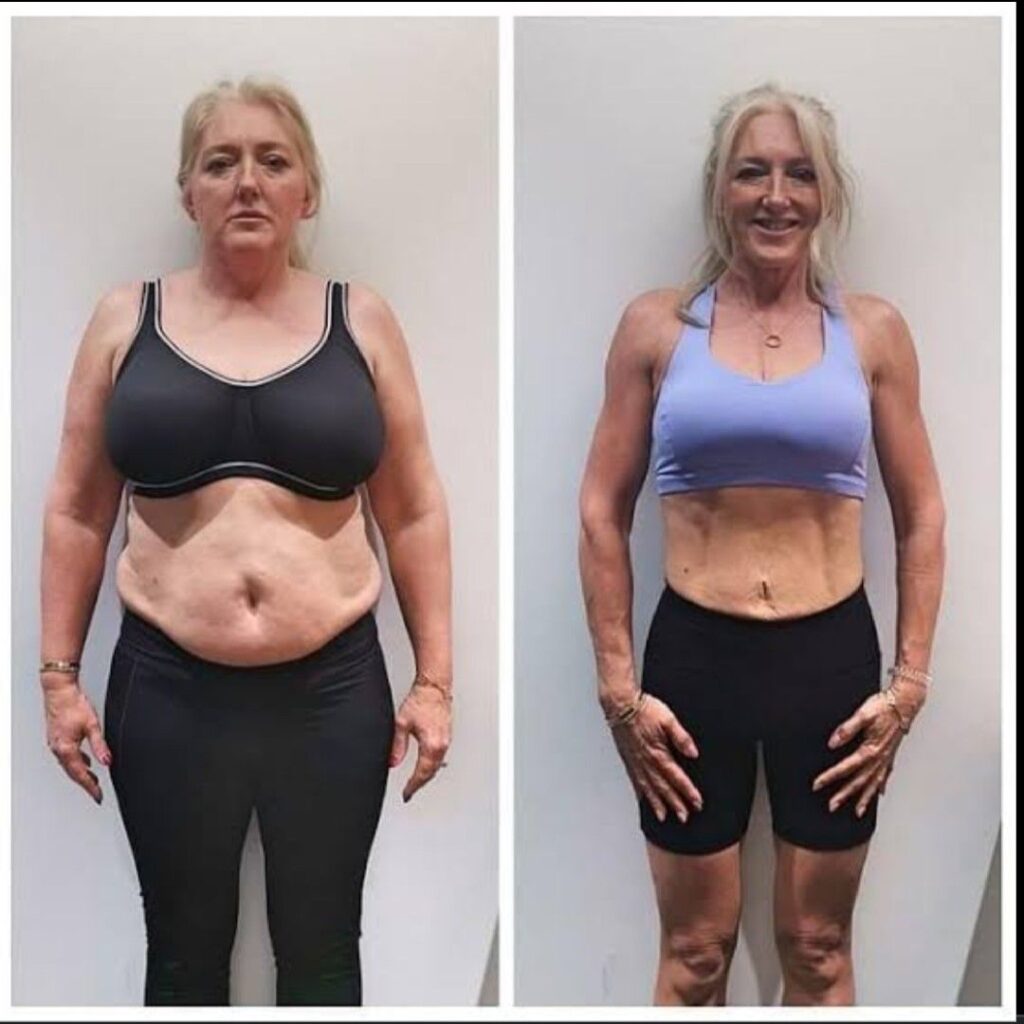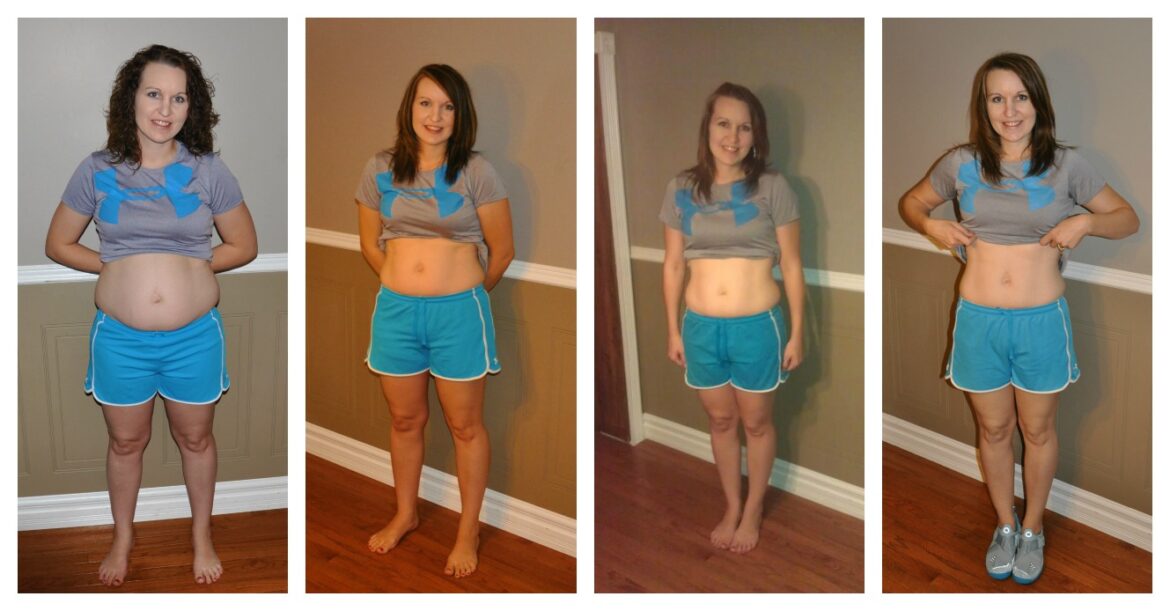Introduction
Will Hrt Help With Weight Loss: Hormone Replacement Therapy (HRT) has been a topic of significant interest and debate, especially in recent years, as it pertains to various aspects of health and wellness. One of the questions frequently asked is whether HRT can assist with weight loss. HRT is primarily associated with managing hormonal imbalances and alleviating symptoms of menopause or other hormone-related conditions. However, its potential impact on weight management has garnered attention due to its influence on the body’s hormonal milieu. In this discussion, we will explore the relationship between HRT and weight loss, examining the scientific evidence, considerations, and factors that play a role in this complex interaction. It is essential to note that individual responses to HRT can vary, and the decision to pursue such therapy should always involve consultation with a healthcare professional who can provide personalized guidance and recommendations based on one’s unique medical history and needs.
Before pursuing HRT for weight management, individuals should consult a healthcare professional. HRT has potential risks and side effects, including an increased risk of certain medical conditions, such as blood clots and breast cancer. The decision to undergo HRT should involve a careful evaluation of the benefits and risks based on an individual’s unique health profile.
It’s important to remember that HRT alone is not a guaranteed weight loss solution. A holistic approach to weight management, including a balanced diet, regular exercise, and stress management, remains crucial. HRT should be viewed as one potential tool in a comprehensive strategy for overall well-being.
For those considering HRT, regular monitoring and follow-up with a healthcare provider are essential. Dosages and treatment plans may need adjustments over time to ensure safety and effectiveness.

How quickly will I lose weight on HRT?
Immediate results are what we all want, but the benefits of HRT take a little time. While many people notice improvements in sleep or mood within weeks of starting HRT, changes like improved muscle mass or fat loss can take at least three to six months.
Factors Influencing Weight Changes on HRT
Hormone Type and Dosage:The type of hormone used and its dosage can significantly affect how quickly you may lose weight. For instance, estrogen can promote fluid retention, which can lead to temporary weight gain. On the other hand, testosterone may promote muscle growth and fat loss in transmasculine individuals.
Individual Physiology:Everyone’s body reacts differently to HRT. Genetics, metabolism, and pre-existing health conditions can all play a role in how quickly you may lose weight.
Lifestyle and Diet:HRT should be considered a part of a broader approach to health and well-being. Your diet and physical activity levels have a substantial impact on weight management. Combining HRT with a balanced diet and regular exercise may enhance your weight loss efforts.
Age:Age can influence how your body responds to HRT. Younger individuals may experience more significant changes in body composition compared to older individuals due to differences in metabolic rates and hormonal responsiveness.
Hormone Levels:Achieving the right hormone balance is crucial. Your healthcare provider will monitor your hormone levels and adjust your HRT regimen accordingly. Imbalances or fluctuations can affect your weight loss progress.
Is there a HRT that helps with weight loss?
Many women actually find that they lose weight by using HRT as it shifts the metabolism back into a pre-menopausal metabolic state. Progesterone can sometimes cause fluid retention which can mimic weight gain, but there are alterations that can be made to the regime to minimise this impact.
HRT and Weight: The Complex Connection
Estrogen Therapy:Estrogen therapy, often prescribed to menopausal women, may have some impact on weight. Some studies suggest that estrogen can help prevent the accumulation of visceral fat (fat around the abdomen) and may slow down age-related weight gain. However, the effect is generally modest, and not all individuals experience weight changes with estrogen therapy.
Testosterone Therapy:For transmasculine individuals undergoing testosterone therapy, there may be changes in body composition. Testosterone can promote muscle growth, which can lead to fat loss. However, it’s important to remember that the primary goal of testosterone therapy is not weight loss, but rather gender-affirming changes.
Thyroid Hormone Therapy:Thyroid hormones, such as levothyroxine, are used to treat thyroid disorders like hypothyroidism. Optimizing thyroid hormone levels can help regulate metabolism, potentially assisting in weight management. However, thyroid hormone therapy should be carefully monitored to avoid overmedication, which can lead to unintended weight loss.
Ghrelin and Leptin Hormones:Ghrelin is a hormone that stimulates appetite, while leptin helps regulate satiety. Some researchers have explored the use of medications that affect these hormones to assist with weight management. These medications are not strictly HRT but can play a role in weight-related hormone therapy.
Individual Response:The impact of HRT on weight loss is highly individualized. Factors like genetics, lifestyle, and pre-existing health conditions can significantly influence how one responds to hormone therapy.
Does taking HRT reduce belly fat?
A new study of more than 1,000 postmenopausal women, ages 50 to 80, found that those who were currently taking hormones had significantly lower levels of tummy fat than women who had never used them.
The Role of Hormones in Belly Fat
Estrogen and Belly Fat:Estrogen, the primary female sex hormone, has been associated with body fat distribution. During menopause, estrogen levels decline, which can lead to a shift in fat storage from the hips and thighs to the abdominal area, commonly referred to as visceral fat. This visceral fat is associated with increased health risks.
Testosterone and Belly Fat:In transmasculine individuals undergoing testosterone therapy, there may be changes in body composition. Testosterone promotes muscle growth, which can lead to fat loss, including in the abdominal area. However, it’s important to note that the primary goal of testosterone therapy is not fat reduction but rather gender-affirming changes.
Thyroid Hormones and Belly Fat:Thyroid hormones play a crucial role in metabolism regulation. Hypothyroidism, characterized by an underactive thyroid, can lead to weight gain, including belly fat. Optimizing thyroid hormone levels through medication can help address this issue.
HRT and Belly Fat: What to Expect
Estrogen Therapy:Estrogen therapy during menopause may have a modest effect on belly fat reduction for some individuals. Estrogen can help prevent the accumulation of visceral fat, but results can vary widely among individuals.
Testosterone Therapy:Transmasculine individuals on testosterone therapy may experience fat redistribution, which can include a reduction in belly fat. However, the degree of fat loss and its timeline will differ among individuals.
Thyroid Hormone Therapy:Optimizing thyroid hormone levels through medication can help regulate metabolism and may assist in reducing belly fat associated with hypothyroidism.
Individual Factors:The impact of HRT on belly fat is influenced by individual factors, including genetics, lifestyle, and pre-existing health conditions. Some individuals may see more significant changes in belly fat than others.
Will estrogen HRT help me lose weight?
Many women attribute their weight gain to hormone replacement therapy drugs. But, according to experts, this is a myth. Although HRT may promote fluid retention and bloating, it can actually increase your metabolic resting rate and help you avoid or lose the belly fat associated with perimenopausal weight gain.
Estrogen and Weight Regulation
Metabolism: Estrogen helps regulate metabolism by affecting the body’s energy expenditure. When estrogen levels decline, as is common during menopause, metabolism can slow down, potentially leading to weight gain.
Fat Distribution: Estrogen also plays a role in fat distribution. Before menopause, women tend to store more fat in their hips and thighs. However, as estrogen levels decrease, fat may be redistributed to the abdominal area, leading to an increase in visceral fat, which is associated with various health risks.
Appetite Regulation: Estrogen can influence appetite and satiety. Some individuals may experience increased hunger and cravings as estrogen levels decrease, which can contribute to overeating and weight gain.
The Impact of Estrogen HRT on Weight
Prevention of Visceral Fat Accumulation: Estrogen HRT may help prevent or reduce the accumulation of visceral fat in the abdominal area for menopausal individuals. This can have a positive effect on overall health.
Modest Weight Loss: Some individuals undergoing estrogen HRT may experience modest weight loss, primarily due to a reduction in visceral fat. However, the weight loss observed is generally not dramatic and varies widely among individuals.
Appetite and Metabolism: Estrogen HRT may help regulate appetite and metabolism, potentially leading to better weight management. However, the extent of these effects can differ from person to person.
Does HRT change your body shape?
Most changes are expected to happen in the first few months and can last indefinitely until you stop HRT. But certain changes, such as breast growth, are irreversible. Fat distribution, softened skin, and slowed growth of body hair are all examples of reversible changes.
Male-to-Female (MTF) Transition
Fat Redistribution: Estrogen encourages fat to be stored in a more feminine pattern, which typically includes the hips, thighs, and buttocks. This can lead to a more curvaceous and feminine body shape over time.
Breast Development: MTF individuals may experience breast development as a result of estrogen therapy, contributing to a more feminine chest contour.
Skin Changes: Estrogen can lead to skin softening and improved skin elasticity, enhancing a more feminine appearance.
Reduction in Muscle Mass: Anti-androgens and decreased testosterone levels can lead to a reduction in muscle mass, resulting in a less masculine physique.
Body Hair Thinning: HRT can lead to a reduction in body hair thickness and growth, which contributes to a more feminine appearance.
It’s important to note that the degree of these changes varies among individuals, and genetics can play a significant role in the outcome.
Female-to-Male (FTM) Transition
Muscle Development: Testosterone promotes muscle growth, resulting in a more masculine and muscular physique. This may lead to increased upper body strength and a broader shoulder appearance.
Fat Redistribution: Fat may be redistributed to a more masculine pattern, with less fat stored in the hips and thighs. This contributes to a more rectangular body shape.
Voice Deepening: Testosterone therapy can lead to voice deepening, further aligning with masculine characteristics.
Facial Hair Growth: Over time, testosterone therapy may lead to facial hair growth.
Clitoral Enlargement: Some individuals may experience clitoral enlargement as a result of testosterone therapy.
Does estrogen HRT reduce belly fat?
Your hormone doctor may recommend estrogen replacement therapy to help reduce your symptoms of menopause, such as hot flashes, mood changes, and difficulty sleeping. In addition to helping with these disruptive symptoms, it may also help with belly fat during menopause.
The Role of Estrogen in Fat Distribution
Metabolism Regulation: Estrogen helps regulate metabolism by affecting energy expenditure. When estrogen levels decline, as is common during menopause, metabolism can slow down, potentially leading to weight gain.
Fat Distribution: Estrogen influences the body’s fat distribution pattern. Before menopause, women typically store more fat in their hips and thighs, which contributes to a pear-shaped body. However, as estrogen levels decrease, fat may shift to the abdominal area, leading to the accumulation of visceral fat, which is associated with various health risks.
Appetite and Satiety: Estrogen can influence appetite and satiety. Some individuals may experience increased hunger and cravings as estrogen levels decline, which can contribute to overeating and weight gain.
The Impact of Estrogen HRT on Belly Fat
Preventing Visceral Fat Accumulation: Estrogen HRT may help prevent or reduce the accumulation of visceral fat in the abdominal area for menopausal individuals. This can have a positive effect on overall health and reduce the risk of associated health conditions, such as heart disease and diabetes.
Modest Weight Loss: Some individuals undergoing estrogen HRT may experience modest weight loss, particularly in the abdominal area. This is primarily due to the reduction in visceral fat. However, it’s important to note that the degree of weight loss is typically not dramatic and varies among individuals.
Appetite Regulation: Estrogen HRT can help regulate appetite and metabolism, which may lead to better weight management. However, the extent of these effects is influenced by individual factors.
Does HRT make you look younger?
As menopause and hormonal changes can take a toll on our skin, HRT works to combat those aging effects in productive ways. On a basic level, HRT makes your skin look younger by balancing the hormone levels contributing to aging signs.
Individual Variability
It’s important to note that the effects of HRT on appearance are highly individualized. Genetics, lifestyle, and other factors play a significant role in determining how HRT affects one’s appearance.
Preventing Age-Related Symptoms
While HRT can have positive effects on appearance, it should primarily be used to address hormone imbalances and manage associated symptoms. Any improvements in appearance should be viewed as secondary to the primary goal of achieving hormonal balance.
Consultation with a Healthcare Provider
Before starting HRT, it is crucial to consult with a healthcare provider who specializes in hormone therapy. They can provide personalized guidance, monitor progress, and help set realistic expectations regarding the impact of HRT on appearance.
What happens when you first start taking HRT?
You may experience some breast tenderness, vaginal bleeding or spotting, or some abdominal bloating in the first few weeks after starting estrogen and progesterone treatments. If taking progesterone, you may also notice a dip or change in your mood initially.
Initial Assessment and Consultation
Before initiating HRT, you’ll have an in-depth consultation with a healthcare provider, such as an endocrinologist or a gender specialist. This consultation is crucial to determine the appropriate treatment plan, including hormone type, dosage, and monitoring schedule. Your healthcare provider will also discuss your medical history, goals, and potential risks and benefits.
Prescription and Medication
Once your treatment plan is established, your healthcare provider will prescribe the necessary hormones. The most common hormones used in HRT include estrogen and testosterone. You will receive instructions on how to take the medication, including dosing and administration methods (e.g., oral pills, injections, patches, or creams).
Monitoring and Follow-Up
Regular monitoring is an integral part of HRT. You’ll schedule follow-up appointments with your healthcare provider to track your progress. During these visits, they will assess hormone levels, monitor potential side effects, and make adjustments to your treatment plan as needed. The frequency of follow-up appointments may vary, but they are typically more frequent in the early stages of treatment.
Emotional and Psychological Changes
Hormones can influence emotions and mood. Some individuals report feeling more aligned with their gender identity and experience improved mental well-being shortly after starting HRT. However, mood swings and emotional adjustments can also occur, so ongoing support, including counseling, may be beneficial.
Side Effects and Risks
It’s essential to be aware of potential side effects and risks associated with HRT. These can vary depending on the type of hormones used and individual factors. Common side effects include breast tenderness, mood swings, changes in libido, and potential cardiovascular or clotting risks.

Conclusion
The relationship between Hormone Replacement Therapy (HRT) and weight loss is complex and highly individualized. While some individuals may experience modest changes in weight and body composition as a result of HRT, it is not a guaranteed or primary method for weight loss. HRT primarily serves the purpose of managing hormonal imbalances and alleviating symptoms associated with conditions like menopause.
The effects of HRT weight management should be viewed within a broader context of overall health and wellness. Factors such as genetics, diet, exercise, lifestyle, and individual responses to treatment play a significant role in determining how HRT may impact one’s weight. It is crucial for individuals considering HRT to consult with a healthcare professional who can provide personalized guidance, evaluate the benefits and risks based on their specific health profile, and monitor the treatment’s effects over time.
Ultimately, while HRT may offer some secondary benefits related to weight and body composition, it should not be relied upon as a sole or guaranteed method for weight loss. A holistic approach to health, including balanced nutrition, regular physical activity, and stress management, remains fundamental to achieving and maintaining a healthy weight and overall well-being.


1 comment
… [Trackback]
[…] Info to that Topic: thefitnessblogger.com/will-hrt-help-with-weight-loss/ […]